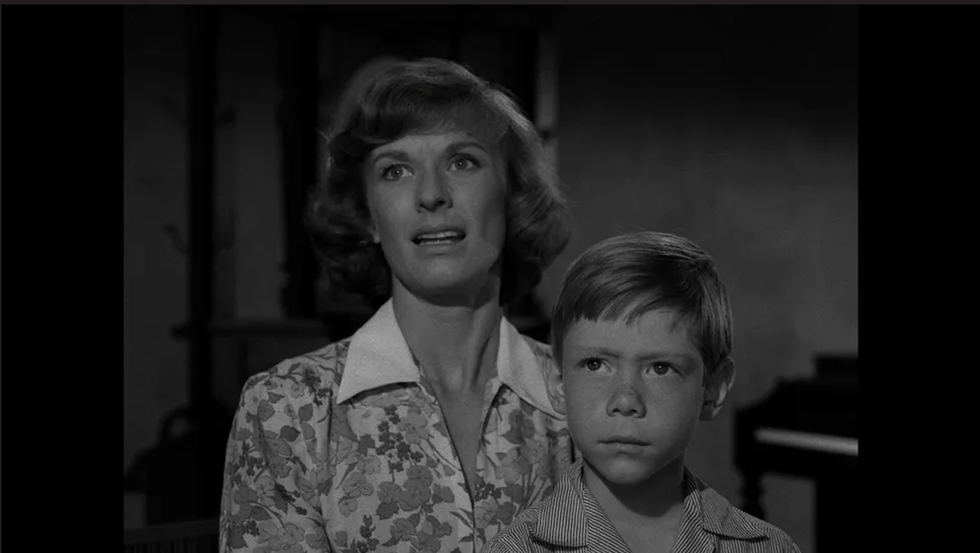
Patrick T. Fallon/Getty Images

By sparing you from honest criticism, adults have stunted your growth. But it's not too late to face the truth and thrive.
We have been raising spoiled, stunted children in the West for at least two generations. Millennials had maturity problems previously unseen in young adults. Gen Z is worse.
When I criticize the deficiencies of the younger generations, as I will here, it is not out of pride. I do not want to “gotcha” younger people. My ego does not grow two sizes larger by “cutting down” younger people.
Generation Z today is objectively the least competent across all domains of life of any generation we’ve ever seen. This is not their fault, but only they can recognize this and correct it.
Though Gen Z is hostile to older people like me, and though they don’t believe this, some of us older people genuinely care about them. I am one. I want to help younger people raise themselves to a higher level, as caring adults did for me when I was young and lost.
Young people today have, through no fault of their own, a distorted and false view of themselves. They believe they have knowledge they do not have. They believe they have wisdom when what they have is simply a generational prejudice. Their parents and teachers have praised them for substandard work and behavior their whole lives; why wouldn’t they think they know better than some stupid 50-year-old?
The modern (and never before seen in living memory) inversion of values permeates every level of culture. Here are some of those inversions. They are not only inversions of values, they are inversions of objective reality:
These are problems, not progress. And they are not minor problems; they are potentially civilization-ending problems. It is not a coincidence that we saw the cultural elevation of the young over the old with the Hitler Youth and during Mao’s cultural revolution. This inversion alerts us that we are in a Bolshevik mode.

When I was a boy, other kids bored me. I wanted to be part of the adult conversation (even when it wasn’t my place). As soon as I could learn a new skill, I wanted to learn it. Cooking, mending, basic car maintenance, driving a stick (even old school non-synchro-meshed transmissions that required double-clutching-fun!).
When I learned these skills, I felt genuine and earned pride. I felt competent and confident. In my generation, this was a normal attitude for children. It was encouraged by adults, as it should be.
That’s all gone. Generation Z today is objectively the least competent across all domains of life of any generation we’ve ever seen. This is not their fault, but only they can recognize this and correct it. But not many will because they have been taught that being told they are incompetent or rude or ignorant or simply "not perfect" is an assault. They experience correction and instruction as acts of aggression against them. They have almost no genuine ego-strength.
The other day, I saw an ad for Uber Teens. That’s right. A special, teen-only account for Uber. Step back and look at that from five feet away: There is actually a market for a “teen’s taxicab service.” That’s remarkable — and worrying.
Why does that market exist? Because the coddled and stunted Generation Z doesn’t want to get a driver’s license. That, too, is astonishing. Have you tried offering a young person a lesson in driving a manual transmission vehicle? I have. The reaction has been swiftly negative. Bemusement tinged with fear and a bit of disgust. “I COULD NEVER do that; it’s so HARD.”
The consequences of the false ego-fluffing adults have performed on this generation show up in their writing, too. The quality of writing from many younger people is far below the standard of what was, until recently, considered normal writing competence that any person of average intelligence could achieve.
The way they write reflects negative changes in our cultural psychology. Young writers rely on the passive voice. They avoid direct statements. They substitute emotion words for thought words. For example, “Many voters feel like the President maybe is not in the best health.” They write in a flaccid, timid tone. What style they try to deploy usually ends up introducing redundant emotional intensifiers and superlatives.
Instead of writing clearly and confidently, drawing on a base of subject-matter knowledge, many young people try to “sound fancy.” For example, compare these two sentences:
I would write: “She gave him a classic Corvette for his 65th birthday.”
Gen Z writes: “She gifted him a classic Corvette.”
Affected. Twee. Flowery. Objectively bad writing. Florid circumlocutions cannot disguise grammatical and syntactical incompetence.
It’s just plain bad prose.
And no one ever told them that. Correcting them is difficult for two reasons:
Are you a Generation Z reader? If you are, and you’re still with me, I have two anecdotes that may help you see what I mean.
I went to Sarah Lawrence College. This was the liberalest of the liberal arts schools. I was trained to write in the style of Foucauldian Continental philosophers. In other words, I was trained to write badly.
But I did have professors and advisors who cared about me and wanted to see me do my best. In my freshman year, I turned in a paper to my advisor that I had just “phoned in.” Mary, my don, returned it to me covered in red pen:
”Josh — never turn a paper like this in again. I know what you’re capable of and I will not tolerate it.”
It was humiliating, and it was a gift. I never turned in substandard work again.
A few years later, I got a job at a daily paper in a small city, having “graduated” from the small-town weekly paper I started at. The first few months were ego-bruising. Bob, my editor, returned my copy to me frequently in actual, physical red pen (and real-world paper; gross and scary, right?).
My writing was flowery, full of adjectives, and in the wrong tone for news coverage. Bob kept after me, instructing me on the “inverted pyramid” structure of news writing while pruning my excess adjectives.
A few months in, he said to me, “Josh, you oversold yourself during your interview. You weren’t that good. But you’re a much better writer now.”
And the next year, I won first place in the statewide press association awards for investigative consumer reporting. Bob’s discipline was a gift to me, not a punishment.
If there was one thing I could communicate to young people and have them really accept and take it on board, it would be this: You are capable of so much more than you believe. You can learn to drive that truck, to write that article, to balance that household budget, and to cook that food for yourself.
But to get there, you have to take honest stock of where you are now. The adults in your life have, sadly, given you a false picture of your skill level. Said with no snark, and no intent to insult or to hurt you: You are objectively far less competent than adults your age from prior generations.
That is not your fault. You are not unworthy. It does not mean that I, or other older adults “hate” you.
These older adults want to help you become the full, mature, competent and poised adults that you can be. Will you let us?
Josh Slocum